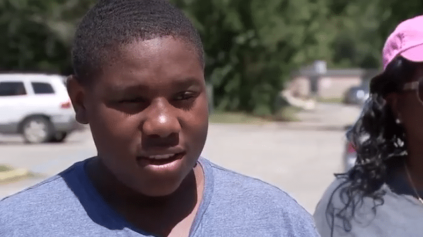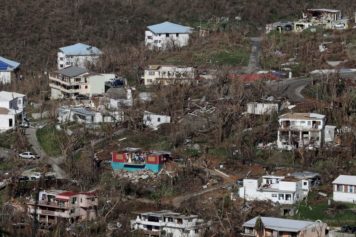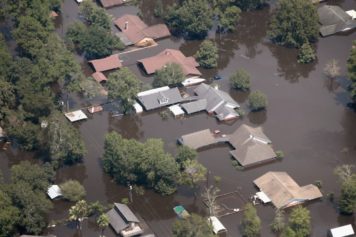We hear the horror stories of those victimized by an epic storm, how they survived the destructive winds, the deadly surge, the massive flooding. With the recent apocalyptic impacts of hurricanes Harvey and Irma, there is certainly no shortage of tragic and sensational stories dominating our news cycles. This is only fitting, given this timely and necessary information enables our empathy, our action and our capacity to improve the plight of those victims simultaneously blessed and cursed to have survived.
However, we hear a lot less about how many survivors continue to be victimized long after the storm and its heightened coverage has faded from national view. And given the corporate exploitation and inequitable management of post-Katrina New Orleans, some believe there are substantial aspects of the city’s touted ‘recovery’ not worth repeating.
“Public housing was given to private companies, public hospitals were closed, public school teachers were fired and all the public schools were turned into privately run charter schools,” said Bill Quigley, associate director of the Center for Constitutional Rights and a law professor at Loyola University New Orleans. “Tens of thousands of people were harmed in this process.”
A Katrina survivor himself, Quigley recently penned a letter warning survivors of hurricanes Harvey and Irma of the corporate greed, opportunism and exploitation that will likely follow these modern disasters. “Landlords in Texas have already started evicting renters and unscrupulous rehab people are all over the place,” said Quigley, noting he “wrote the letter after seeing what was going on in Houston and talking with some lawyers from Florida.”
Despite this warning, some see the transformation of New Orleans as a shining example of municipal and educational renewal, even as a blueprint for its struggling Texas neighbor. In a recent op-ed, Aspen Institute president and former vice chair of the post-Katrina Louisiana Recovery Authority, Walter Isaacson, touted the recovery as a service model for Houston, highlighting the nonprofit Teach for America in the process. “New Orleans has become a magnet for education entrepreneurs, many of them former Teach for America corps members,” wrote Isaacson of the organization he represents as chairman emeritus of the board. “Before Katrina, the city’s school district was second from the bottom statewide in math and reading scores. Orleans Parish students now score on par with the state average, and graduation rates and standardized test scores have risen.”
But former Teach for America alum Catherine Michna has voiced a popular critique of the program, one largely applicable to post-hurricane New Orleans. A postdoctoral teaching fellow at the city’s Tulane University, Michna believes her former program serves a free-market push to replace local teachers with minimally-trained outsiders unfamiliar with the local culture. “TFA members do not work in service of public education,” wrote Michna, in a widely-circulated blog. “They work in service of a corporate reform agenda that rids communities of veteran teachers, privatizes public schools, and forces a corporatized, data-driven culture upon unique low-income communities with unique dynamics and unique challenges.”
Still, education is just one aspect of the storm-fueled takeover of New Orleans. Along with the thousands of teachers terminated, the impact on labor was just as devastating, as collective bargaining in the state was largely crippled by the associated dismantling of the state’s largest union. By 2016 union members made up only 4.2 percent of wage and salary workers in Louisiana, down from a 9.4 percent peak in 1993 and its lowest membership rate on record.
Public housing in New Orleans met a similar fate, as private contractors descended upon the reeling city with many former residents dispersed, displaced or deceased. Thousands of public housing units were razed and replaced with far less affordable condos and townhouses, a clear sign former residents were no longer welcome.
As of 2015, there were 100,000 fewer Black residents in New Orleans than before Katrina as African-Americans accounted for less than 60 percent of the population, down from two-thirds. “We finally cleaned up public housing in New Orleans,” offered Richard Baker, a Louisiana congressman, just after the deadly storm. “We couldn’t do it, but God did.”
These processes were consistent with the intentions of a federal government already heavily criticized for its disastrous and neglectful emergency response. When Katrina battered New Orleans, current vice president Mike Pence was chair of the Republican Study Committee, an influential caucus of conservative lawmakers. Barely two weeks after the storm, the committee met at the Heritage Foundation in Washington D.C. and forged an agenda of “Pro-Free-Market Ideas for Responding to Hurricane Katrina and High Gas Prices.”
Among the items on the list, many of which then-president George W. Bush adopted soon afterward, were a dismantling of environmental regulations, labor standards and any significant barriers to privatization or the expansion of oil and gas industry interests. This type of commercial post-catastrophe opportunism is what syndicated columnist and bestselling author Naomi Klein has referred to as “disaster capitalism,” or making money from misery.
While deploring such methods, Quigley is more focused on preventing them from harming and exploiting others in the future. His Katrina-based warning letter spans the areas of housing, insurance, contracting, charity and government and offers the survivors of our nation’s more recent storms valuable instructions on how to best avoid being further victimized going forward.
“People need to absolutely do two things,” insisted Quigley. “First, keep track of all their paperwork because the government will make mistakes. Second, people need to band together with others in their neighborhood, church or work community and fight for the rights of their communities.” Unless they have lots of power or money, continued Quigley, “Individuals alone are going to have terrible times rebuilding.” For some, the lessons of Katrina, and the implications for Harvey, Irma and any other future catastrophe, loom even larger as they go far beyond rebuilding.


